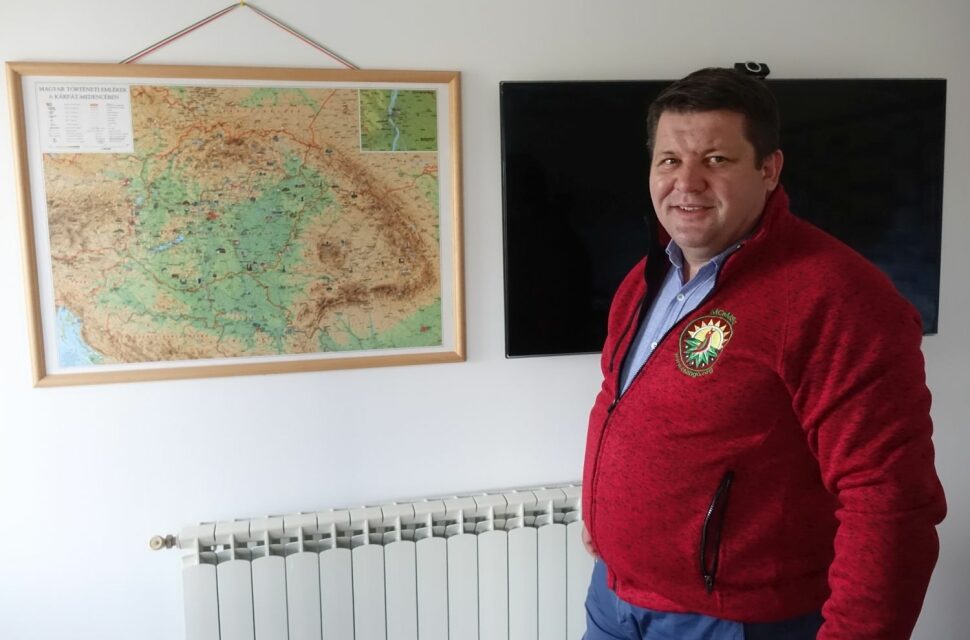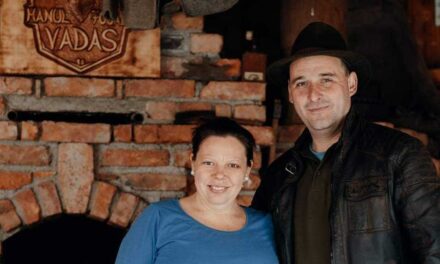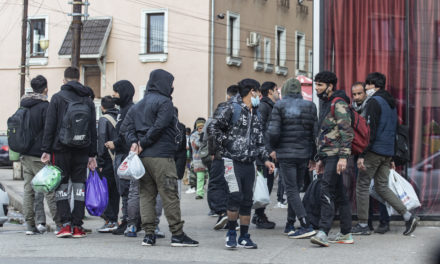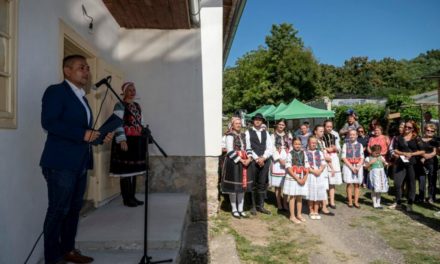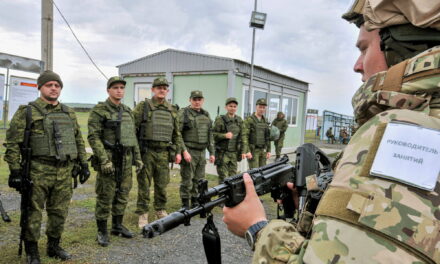Severe discrimination, oppression, ostracism - this is how the Hungarians in Moldova lived a few decades ago, but recently their situation has improved dramatically. Interview with László Pogár, the president of the Association of Moldavian Csángo Hungarians.
Many people may not even know it, but there are approximately 60,000 people living in the eastern part of Romania who still speak the Hungarian language at some level and keep the traditions - as well as the Catholic religion, which is also in the minority here - even though their homeland has never belonged to them throughout history. to Hungary. They are the Csángó Hungarians, their settlements are located in the catchment area of Bákó, a city of 140,000 people.
For centuries, they were ignored and almost looked at as air, but thanks to the work of the Association of Moldavian Csángó Hungarians (MCSMSZ), something has moved in the last two or three decades.
What was life like as a Csangó Hungarian in the past?
For a very long time, those who wanted to assert themselves were pushed back and suppressed. In the 1990s, it was still a conscious goal to break up the community: doctors and other specialists were sent directly to other counties from Brasov to Konstanz to be as far away from their homeland and relatives as possible.
The first time I left my own village, I was 15 years old, and I was surprised that the language we use is spoken elsewhere.
In 2008, at the age of 24, I ran for mayor of Magyarfalu (one of the easternmost Hungarian settlements, 900 kilometers from Budapest - ed.) in the colors of the RMDSZ. After I stood up to people and openly announced my intention, my father was fired from his job almost immediately, and my mother's disability benefits were cut off.
In addition, how did discrimination appear in everyday life?
I could mention many such examples, unfortunately it was quite common for us to be looked down upon and ignored. When I was sent down for bread as a child, the baker said: "Hungarians should stand at the end of the line!" Pressure was also very common at school, especially when someone only spoke Hungarian. Such was the mood in the nineties. As a first grader, I could count for seven in Romanian, that was all I knew in Romanian. This is no longer the case, in recent decades, Csangó Hungarian parents have consciously started to speak Romanian to their children so that they are not pushed out of the community.
I had a teacher who started every class by saying: when you meet someone on the street, say hello to them in Romanian, because that's how it should be. Whether the person is from Csang or Romanian. The parents were pretty much powerless, there was no organization behind them - generations grew up without any education in Hungarian or representation of interests at all.
It's no wonder that what was more important to everyone was that their child learn Romanian properly, be able to assert themselves and not be flogged because of their weak knowledge of Romanian.
What does the Association of Moldavian Csangó Hungarians do?
In 1991, the association was established in Sepsiszentgyörgy, in 2000 we started education outside the school in the Hungarian settlements in Moldova. Klézse and Pusztina were the first two locations, and then the circle gradually expanded. We are currently present in 35 locations, we hold language and musical instrument education, and tradition-preserving sessions, so that they are not forgotten as the older generation dies out. Fortunately, it can now be said that children in several settlements are making good progress in learning the Hungarian language thanks to our educational program, and we can even put together an entire orchestra of young people as a result of our music education and tradition preservation program. We also organize sports programs for the children, for example football championships: these have a serious appeal in the villages, hundreds of people gather at these times.
We are starting to become more and more aware of the local bodies, they are finally taking it into account that we exist and want to assert ourselves. From 2015, we also started dealing with adults, for example we organize dance houses, and every February the traditional Csángó Bált in Báko.
The most recent one was more successful than ever: if someone had told me in the 90s that 1,200 Hungarians from the entire county would gather, I would hardly have believed it.
Then it wouldn't have been possible to organize it, but the people wouldn't have dared to take it on either.
Now you can see that there is a future for Hungarian culture in Moldova. In 2019, we bought the Magyar Ház in Bákó, directly opposite the bus station, so that commuting children and residents of the villages could easily access it. 40-50 children take part in afternoon education here on a daily basis, we have modern classrooms, and we often organize dance halls and other musical programs. This is also where the MCSMSZ headquarters and our office are located. Before that, we operated in an apartment in a block of flats, and you can't even compare those conditions with the current ones.
How many people are employed and is there adequate financial support for these programs to be sustainable in so many locations?
We have 135 employees at the 35 locations where we are present. Among them, we run a college in Csíkszereda, where 50 high school children are currently studying: they are the ones who wanted to continue learning in their mother tongue even after the age of eight. This is currently not possible in Moldavia, but there they can get the necessary foundations to later go to university in Cluj or even Hungary and become intellectuals.
Of course, there are people who stay there afterwards, but even today, 90 percent of our office in Bákó is made up of professionals who have furthered their education and then returned.
Thanks to the Hungarian government and especially to Zsigmond Járai, the prime minister's representative responsible for Csangó affairs, we have been able to expand in many locations since 2019, I could say that we have made more progress in the last four years than in the previous 25 years. This is due to the fact that the Government of Hungary provided the funds not only for operation, but also for development (for example, the construction of Hungarian Houses).
In recent years, dozens of new community houses have been built, thanks to which it is now the 21st century. we can provide century-old conditions to the nearly 1,800 children and adults who regularly participate in our programs.
Before 2019, we moved from one small house to another, and we only rented most of them. We started in a garage in Magyarfalu, and today 130 people participate in education in the halls of the newly built Magyar Ház. We should set foot in at least 20 more settlements, but the war in Ukraine and the general economic situation unfortunately limit our scope.
What are your duties as president?
I have worked a lot in the past 5 years to ensure that the local governments and the participants in county Romanian politics accept us. A decade ago, there was no question of making any kind of agreement with us Hungarians, it took a lot of negotiations to slowly start opening up to us. Today, we are at the point where, if we organize a soccer tournament in, say, Ferdinándújfalu, we will get the local sports hall, and we can even use the soccer fields of the Romanian public school.
Recently, not only was this not allowed, they usually put it directly across the board.
I find it difficult to explain these things in Székelyland, or especially in Hungary, where it is natural for a non-governmental organization to organize a soccer match for children or provide a hot lunch for those in need.
Here, however, it is also a huge step forward if I can call a mayor without fear and tell him that we are organizing a program in the village, come to the opening.
This cannot be compared to when people didn't dare to go to the programs we organized, so that the mayor or the school principal wouldn't hear that they were there and lose their favor.
What is the reason for this turn of events?
5-6 years ago, I started consciously visiting the mayors. Everywhere I said: "listen, I brought a bottle of good Hungarian wine, let's talk." This made it much easier to get to know each other's point of view and build trust. Today, there is a mayor who comes to our events, greets people in Hungarian, and even gives a speech. The fact that they saw the imposing Hungarian Houses being built one after another in the settlements must have helped them take us seriously.
For example, the fact that 130 children come to Magyarfalu every day to take part in our sessions is a strong argument that our work makes sense.
Of course, there are still villages today where the mayor is very against us, but their number is decreasing.
What is their vision for the future?
Assimilation cannot be completely stopped, but it can be curbed to a certain extent. Preserving the identity of all Csangó Hungarians is a very difficult task, but great progress is being made. The biggest challenge is to find courage: until 1989, and even after that, the entire Hungarian population in Moldova was lied to and oppressed, and the situation has improved a lot in this area.
More and more people take courage and dare to stand up for themselves.
It is enough to look at how many people use their Hungarian names on Facebook, even if they write them in Romanian letters, although officially everyone here has a Romanian-sounding name in our documents. We are optimistic, but significant progress cannot be achieved in a short time, we still have a long way to go.
For example, we cannot make up for a 300-year delay in the field of Hungarian education in a few years.
Emigration is also a serious problem: a lot of people went abroad, this is typical not only among the Csangós, but also for the whole of Romania. In addition, the settlements that are closer to Bákó have become very Romanized. For many years there was no Hungarian education or employment. In the communist system, the Hungarians were considered enemies, because of this the Csángos were afraid to speak Hungarian, and they were looked down upon at their workplace if their origin was revealed.
Now more and more of us dare to say that we are Csangó Hungarians and dare to speak our mother tongue.
Although they are not in the majority yet, we are finally moving in the right direction.
If we look at a scale of ten degrees, starting from zero and 10 being the most ideal state, where are we now?
It is difficult to think in such a scale, because zero does not actually mean zero, but minus 10. Today we are clearly in surplus, we can record a lot of success, but there is still a lot to do. I used to say that as long as you don't throw anything into the standing water, nothing happens. But from the moment you throw a small pebble into it, the water starts to ring and reaches from the middle to the very edge. This analogy is also true for us, the settlements in Csangó are a bit like small islands in the sea of Romanianness. Assimilation is a big problem, but if you throw more and more pebbles into the water, the result will slowly become visible.

